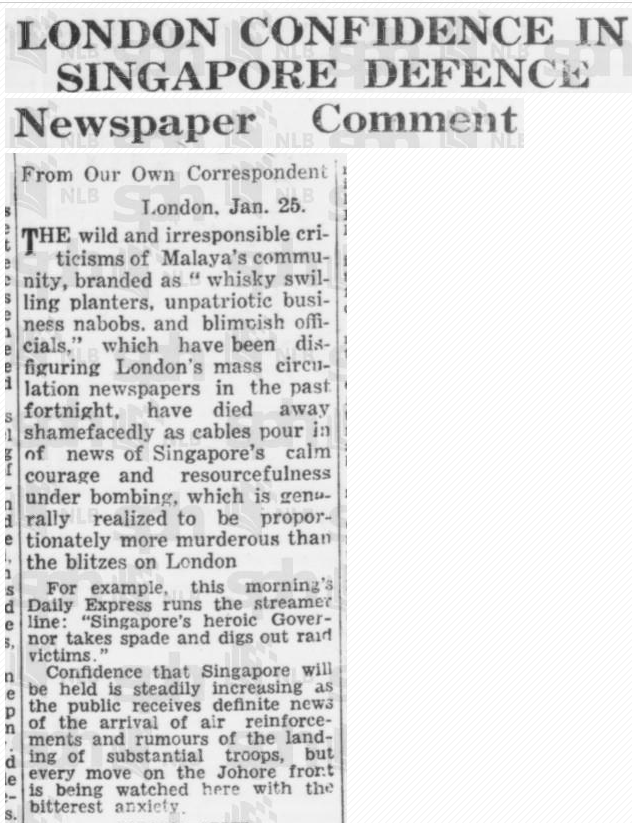As we commemorate Total Defense day, it is poignant to note the link to what is potentially some of the worst falsehoods to be perpetuated in Singapore, contributing in part to the death of thousands of people. The impact is probably greater any recorded use of POFMA to date. An excerpt of the copyrighted article from The Straits Times, 26 January 1942, Page 4 has been reproduced for the purpose of study and research.

1 2 3 4 5 6 7 8 9 | |
Obviously, POFMA was passed decades after WWII and the law doesn't apply retroactively. However, let's look at how such an article would fare under POFMA as an exercise.
There are 2 tests to POFMA. Firstly, it must be a false statement of fact. One might argue that the article above is an opinion and not a statement of fact. That is debatable. Even then, articles inspiring confidence in the defense of Singapore ran for days in multiple publications. With sufficient research, an article which skewed more towards fact than opinion will likely be found.
When looking at the second test, even though it is not explicitly stated, it is obvious that each of the 6 limbs are to be read disjunctively. That is to say, as long as either one of the limbs is satisfied, the second test is deemed to be satisfied. The article above can be argued to satisfy 7 (b) (ii), in that the contents inspired a false sense of confidence in the government's ability, leading readers to make a wrong decision to remain in Singapore instead of evacuating, hence jeopardizing the health and safety of the public, some of whom eventually perished during the occupation.